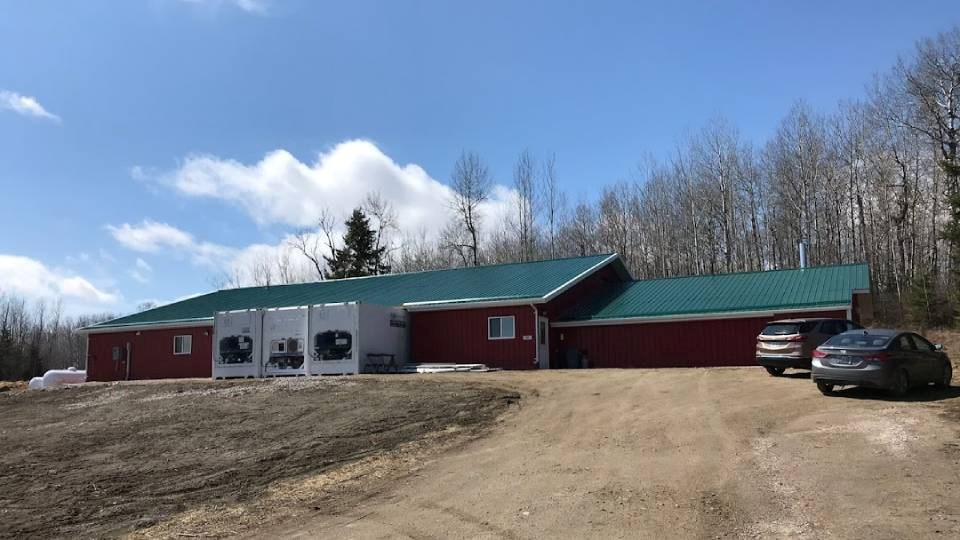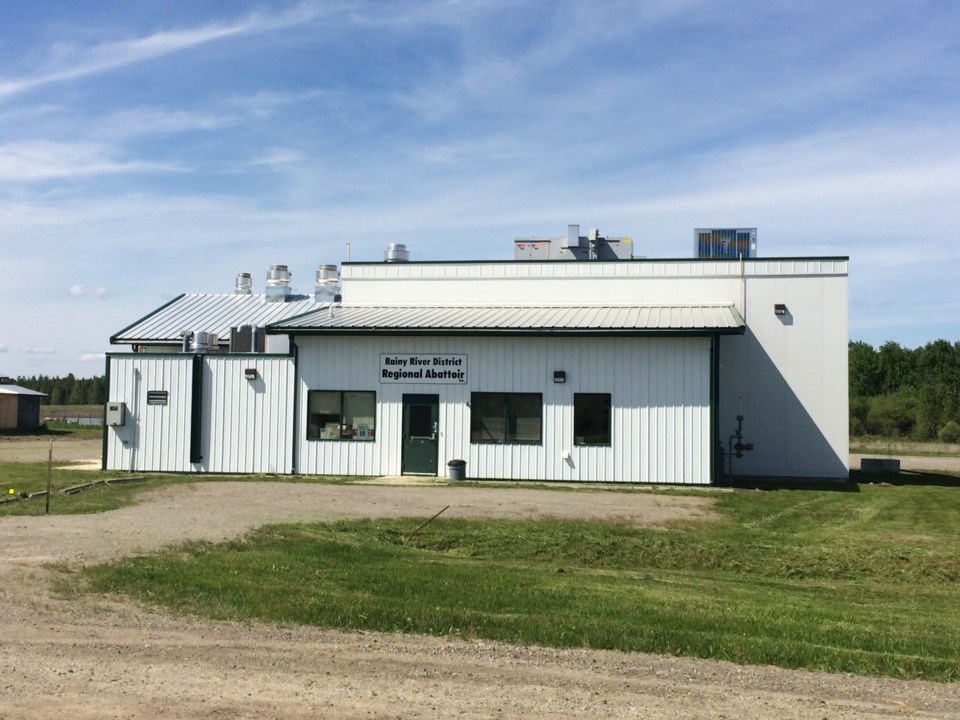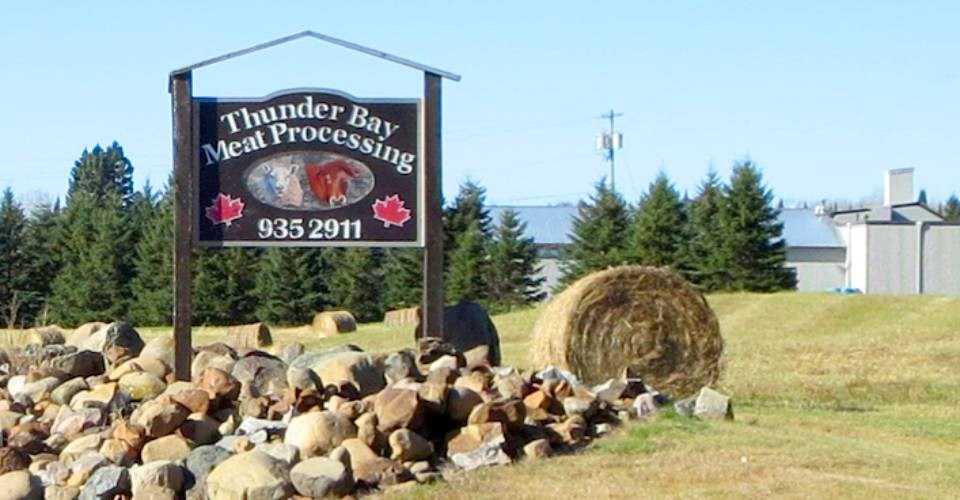Beef farmers in Northern Ontario are used to weathering the ups and downs of the industry.
That includes rising production costs, a shrinking labour pool, and a consumer base that appears stretched thin when it comes to how much they’re willing to spend on groceries.
Now, operators in the region are watching with concern as the owners of a major abattoir near Thunder Bay consider selling their business — or completely shutting its doors — if a buyer can’t be found.
Thunder Bay Meat Processing in Murillo has been for sale for two years, with no sign of a potential partner to take over the 6,200-square-foot facility.
“It feels like the whole area is holding its breath,” Dryden beef farmer Lisa Koshel told Northern Ontario Business. “It feels like everybody's in a panic.”
If the abattoir ends up closing — facility owner Paul Vellinga told Northern Ontario Business that the options are to either sell to the right people or shut down the plant — the decision could have a ripple effect on the local industry.
“It could be a logistical nightmare for all of those producers in that area,” Koshel said. “For years they’d been hauling 10 minutes down the road to Murillo to get their animals harvested, so now what?”
Want more business news from the North? Sign up for our newsletter.
Options for Thunder Bay-area farmers would be to transport animals three or four hours to the next nearest abattoir to be processed, Koshel said, which would add significant costs to their product, or they could simply drop out of the local meat business altogether.
Another abattoir in the area is the Cloverbelt Country Meats processing plant just west of Dryden in Oxdrift. Koshel is also chair of the board that operates that facility.
Their focus is on helping producers in the Dryden area. They have just enough staff to help out with local producers at the plant, but likely wouldn’t have any capacity — staff help is in short supply — to take on any Thunder Bay farmers if the Murillo facility winds down.
“With Thunder Bay being a larger agricultural area, you can appreciate how this could really kind of throw a wrench into the spokes of the farm-to-table wheel,” Koshel said.
And that doesn’t bode well for attracting new people to work in Northern Ontario’s farming industry.
“Farming isn't an industry that we want to lose people out of; it's an industry we want to try to entice people into,” Koshel said. “So that's where the whole sense of dread comes from.”
“We want the perfect person to come along and just look at that facility in Thunder Bay and think, ’Wow, this is a great opportunity for myself and my family.’”

Kim Jo Bliss, who operates a a 50-head herd of Hereford cattle out of KJB Farms in Emo, said farmers in the Rainy River district are also keeping an eye on the Thunder Bay situation.
She said that having an abattoir close by is an asset to the community, even if the general public isn’t aware of where their food is grown or how it is harvested.
“Losing an abattoir doesn't just affect a producer,” Bliss said. “It affects the whole district, affects the whole community.”
“We talk a lot about local food,” she said. “Especially during the pandemic when trucks weren't running, people could still access good beef locally… but without that abattoir, there’s no way you can have that.”
Bliss also sits on the board that operates the Rainy River Abattoir, a locally run facility — more like a “cooperative,” Bliss said — and so she knows firsthand the challenges that operators can face.
“It’s not an easy place to keep running,” she said. “We struggle to find staff and it's expensive. You want to pay your staff as much as you can, but quite frankly, we have to worry about how much we pay.”
SEE: Northern Ontario meat producers still looking to ease labour shortage
Taxes on the facility can range between $20,000 to $30,000 per year, Bliss said. And the cost of labour has seen a dramatic increase across the board, which eats into any margins.
“We don’t have any money, to be quite honest,” Bliss said. “We just sort of live sort of week to week, I guess. We've band-aided ourselves with some government money to help us do some projects and stuff, but it's just not an easy task.”
Vellinga, the owner of Thunder Bay Meat Processing, told Northern Ontario Business that the perfect family, or perfect operator, hasn’t yet approached him about buying the facility.
Without that buyer, the abattoir could close for good.
“The thing is, when you buy a business like this, it's a lifestyle,” Vellinga said.
"You have to accept that and run with it,” he said, referring to the long days of operating and short profit margins. “And if you don't, well, you're in trouble.“
The property is currently listed at $2.25 million, which includes the abattoir operation sitting on 93 acres just off of Oliver Road.
“The key is someone's gotta have money and someone's gotta have ambition,” Vellinga said. “Someone’s just got to buck up and go.”

Once that potential owner comes along, Vellinga said he even expects to help the new owners and mentor them in the operation of the facility.
Until then, it’s business as usual in Murillo. “Plugging along,” Vellinga calls it.
One of the challenges he’s facing is finding and training new workers — his current staff has been dependable and consistent for more than 10 years, he says — but finding people who want to learn and be challenged in a physical environment hasn’t been easy.
“You get the people in, and if they want to work, and if they catch on, then I can give it a go,” he said. “If they don't get it, I just tell him, ‘There's the door and this is not your calling.’ And we'll try the next guy.”
Similar struggles face all employers these days, he said, including trades, office workers and retail.
“Everybody that runs a business is saying the same thing,” Vellinga said. “If nobody bucks up, what are you going to do? That's the nature of the beast.”




